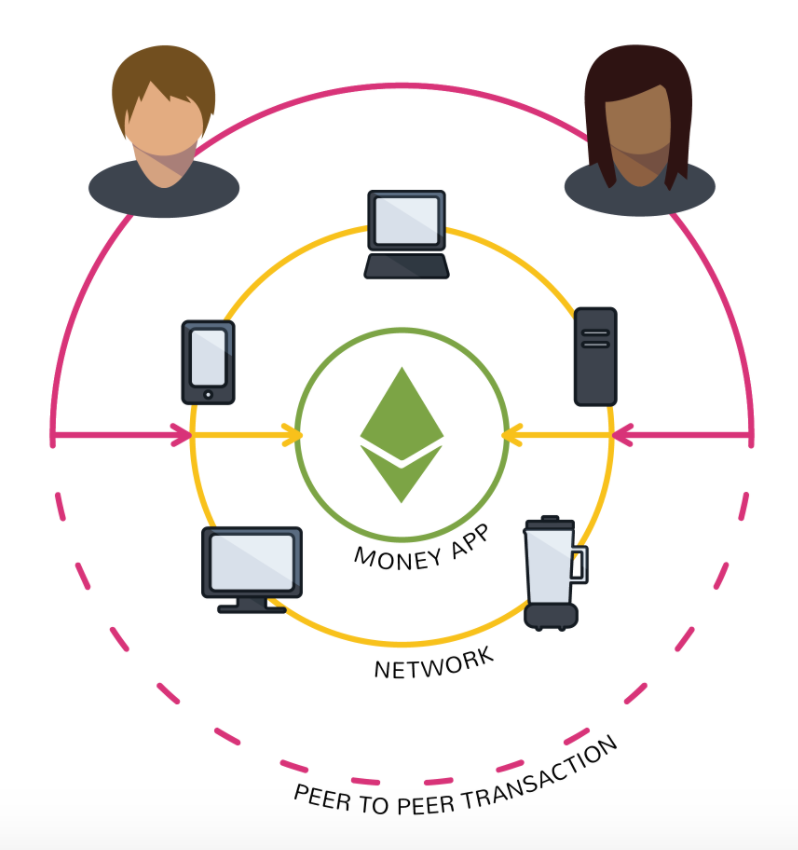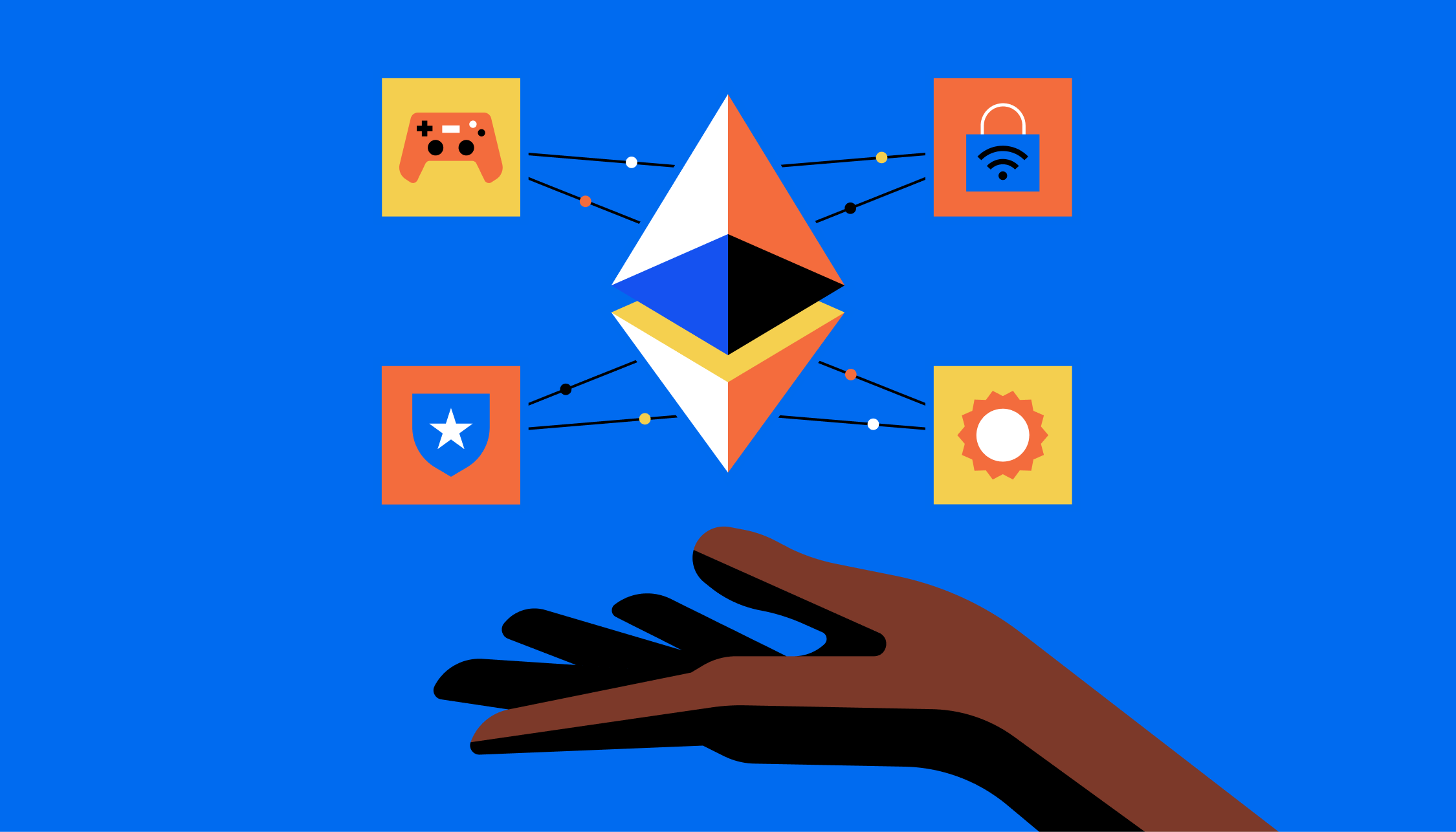The Utility of Ethereum in Today's World
Introduction:
The utility of Ethereum in today's world is vast and multifaceted. As one of the most prominent blockchain platforms, Ethereum has revolutionized various industries and introduced numerous innovative applications. In this essay, we will explore the key areas where Ethereum demonstrates its utility, highlighting its impact on finance, decentralized applications (dApps), non-fungible tokens (NFTs), and decentralized finance (DeFi).
First and foremost, Ethereum has significantly transformed the financial landscape. With the advent of smart contracts, Ethereum enables the creation of decentralized applications that facilitate peer-to-peer financial transactions without intermediaries. This opens up new possibilities for remittances, cross-border payments, and micropayments, eliminating the need for traditional banking systems and reducing transaction costs. Moreover, Ethereum's programmable money feature allows developers to create stablecoins and other digital assets pegged to real-world currencies or commodities, further enhancing the efficiency and accessibility of global financial services.
1.Decentralized applications, or dApps
It represent another area where Ethereum shines. By providing a decentralized and censorship-resistant platform, Ethereum enables developers to build applications that are not controlled by any single entity. This empowers users with increased privacy, security, and ownership of their data. dApps built on Ethereum cover a wide range of industries, including decentralized social media platforms, supply chain management systems, gaming platforms, and prediction markets. These applications foster a more inclusive and democratic digital environment, where users have greater control over their online interactions and transactions.
One of the most notable use cases of Ethereum is the rise of non-fungible tokens, or NFTs. NFTs represent unique digital assets that can be bought, sold, and traded on the Ethereum blockchain. Artists, musicians, and creators of all kinds have leveraged NFTs to tokenize and sell their work directly to consumers, bypassing traditional intermediaries. This has democratized the art and entertainment industry, allowing artists to retain more of the value generated by their creations. Additionally, NFTs have extended beyond art and have been used to tokenize virtual real estate, collectibles, in-game assets, and even real-world assets like real estate and luxury goods. Ethereum's infrastructure provides the necessary framework for the creation, trading, and ownership of these unique digital assets.
2.Decentralized Finance
Furthermore, Ethereum has played a pivotal role in the development of decentralized finance, or DeFi. DeFi refers to an ecosystem of financial applications built on blockchain networks, and Ethereum is at the forefront of this movement. By utilizing smart contracts, Ethereum enables the creation of decentralized lending and borrowing platforms, decentralized exchanges, yield farming protocols, and synthetic asset platforms. These applications provide users with unprecedented financial opportunities, such as earning interest on their crypto holdings, accessing loans without intermediaries, and participating in decentralized trading with enhanced liquidity. Ethereum's programmability and security have made it the preferred platform for many DeFi projects, revolutionizing the traditional financial system and offering more accessible and inclusive financial services.
3.Other domains
In addition to these core areas, Ethereum's utility extends to various other domains. For instance, it has been utilized in the development of blockchain-based identity systems, where users have control over their personal data and can selectively share it with third parties. This has the potential to enhance privacy and reduce instances of data breaches. Ethereum's decentralized nature also makes it an ideal platform for conducting fair and transparent voting systems, ensuring the integrity of elections and decision-making processes. Moreover, Ethereum's scalability solutions, such as layer-two solutions and the upcoming Ethereum 2.0 upgrade, address the network's current limitations and allow for greater scalability, efficiency, and reduced transaction fees.
Conclusion
In conclusion, Ethereum's utility in today's world is extensive and far-reaching. Its impact on finance, decentralized applications, non-fungible tokens, and decentralized finance has transformed industries, empowered individuals, and fostered innovation. As Ethereum continues to evolve and improve with ongoing upgrades and innovations, its potential utility in the future will likely expand even further, shaping the way we interact with digital systems, conduct financial transactions, and exchange value.
![Nekodex – Earn 20K+ NekoCoin ($20) [Highly Suggested]](https://cdn.bulbapp.io/frontend/images/b4f0a940-f27c-4168-8aaf-42f2974a82f0/1)



![[FAILED] Engage2Earn: McEwen boost for Rob Mitchell](https://cdn.bulbapp.io/frontend/images/c798d46f-d3b8-4a66-bf48-7e1ef50b4338/1)
























![[ℕ𝕖𝕧𝕖𝕣] 𝕊𝕖𝕝𝕝 𝕐𝕠𝕦𝕣 𝔹𝕚𝕥𝕔𝕠𝕚𝕟 - OM(G) , My Biggest Bag Was A Scam????](https://cdn.bulbapp.io/frontend/images/99de9393-38a8-4e51-a7ab-a2b2c28785bd/1)












